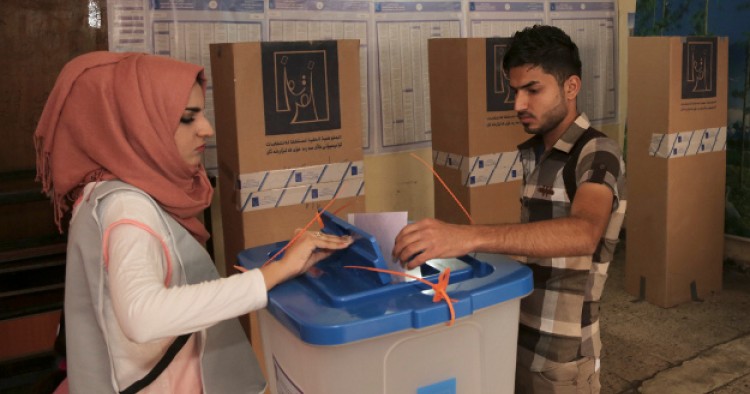Read the full article on LobeLog.
Since 2005, Iraqis have voted in four parliamentary elections yearning for decisive positive change. In three of those elections, popular hope for more effective governance and a decline in violence were dashed with governments consumed by their ambitions and flawed policies. Indeed, elections often have seemed less important than the evolving situation on the ground. If current Prime Minister Nuri al-Maliki succeeds, as expected, in securing a third term after last week’s election, more disappointment probably lies ahead.
Through the premierships of Iyad al-Alawi, Ibrahim al-Jafaari, and Maliki, Iraq’s senior leadership has included a large percentage of former exile opposition leaders along with prominent members of two long-standing Kurdish parties-cum-militias. This relative lack of turnover in terms of fresh political faces at the top has magnified the shortcomings of this narrow grouping.
The 2004 transition and a missed opportunity
Prior to the first election, a non-electoral political milestone giving Iraq its first post-occupation government triggered similar hope. In June 2004, the US-run Coalition Provisional Authority (CPA) under J. Paul Bremer passed formal sovereignty to an Iraqi Interim Government (IIG) with Iyad Allawi as interim prime Minister. With the Sunni Arab insurgency raging at the time, many Iraqis hoped this step away from American control would weaken the insurgency.
At that time, high expectations also were palpable within the Bush administration. Yet, as the head of the State Department’s Iraq intelligence team, I warned such optimism was unfounded. In fact, the new Iraqi political line-up differed little from the Shi’a and Kurdish-dominated Iraqi Governing Council that had worked with Bremer. Such hopes were dashed as the insurgency raged on ever more ferociously.
One big opportunity did present itself in 2004. Many leading Sunni Arab tribal leaders and insurgent commanders sought a ceasefire with American forces (by far their premier foe). Although promising to cease attacks against US and Iraqi targets and cooperate with US forces in countering a burgeoning al-Qaeda in Iraq (AQI), these leaders refused to recognize the IIG. Allawi, pressured by Washington, agreed to meet with the group. However, the IIG rejected the offer (despite otherwise being unable to end the insurgency).
Ironically, just over two years later, with ethno-sectarian violence soaring out of control, the US (despite opposition from another Iraqi prime minister) accepted the same deal unilaterally. Thus, the so-called Sunni Arab “Awakening” would be born, reducing violence substantially, but too late to save the tens of thousands who died during two intervening years of bloody fighting.
Read the full article on LobeLog.
The Middle East Institute (MEI) is an independent, non-partisan, non-for-profit, educational organization. It does not engage in advocacy and its scholars’ opinions are their own. MEI welcomes financial donations, but retains sole editorial control over its work and its publications reflect only the authors’ views. For a listing of MEI donors, please click here.













